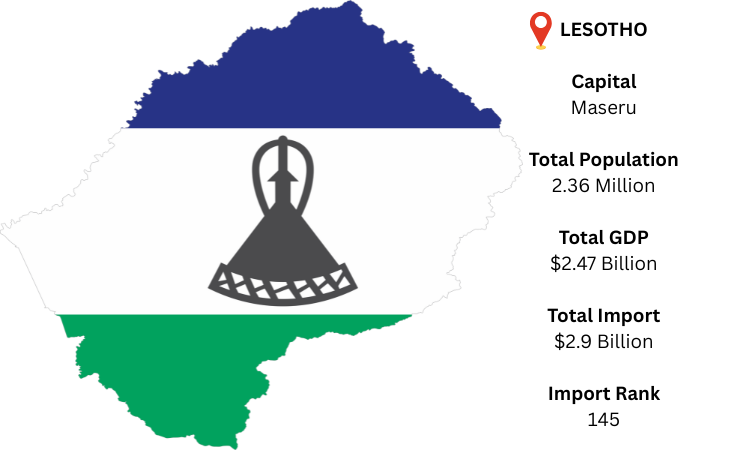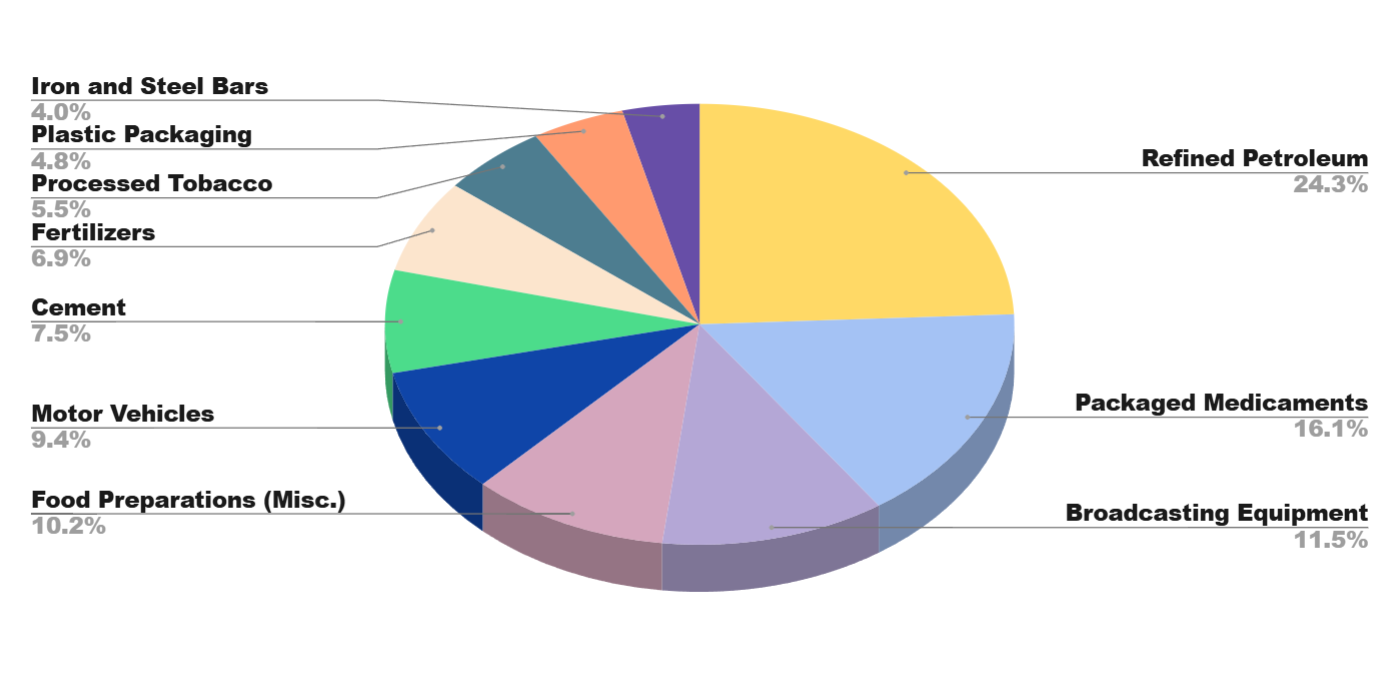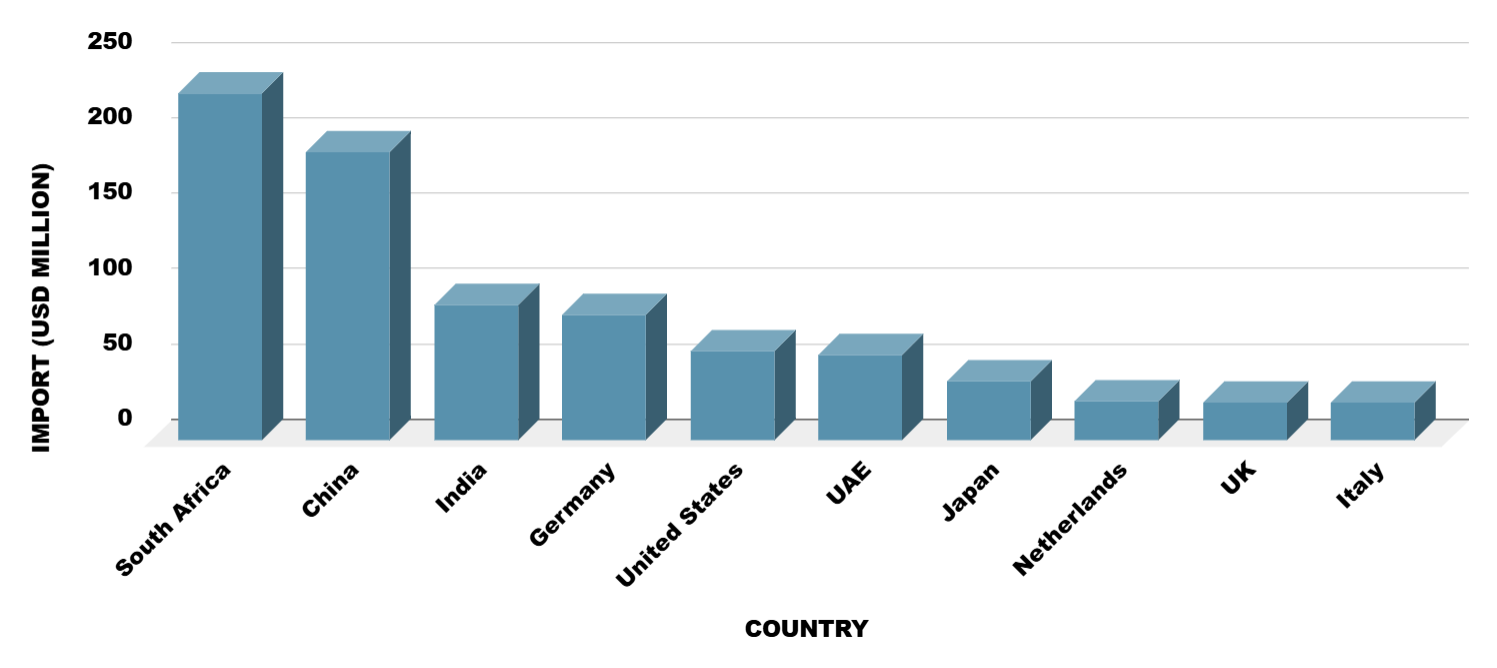Encircled by South Africa, Lesotho is a tiny landlocked nation in Southern Africa. Maseru is the nation's largest city and capital, acting as both its political and economic hub. Lesotho's GDP is projected to reach USD 2.47 billion in 2024, with mining, manufacturing, textile production, and water exports accounting for most of this growth. As per Lesotho import data, Lesotho has a small but significant commercial activity, ranking 145th among importers worldwide. Because of its proximity and solid bilateral commercial relations, South Africa is now the country's top exporter to Lesotho, according to the most recent data. Lesotho is expected to import USD 2.9 billion in total in 2024. To meet its energy, transportation, and industrial demands, the nation imports the most refined petroleum.
According to Lesotho customs data, Lesotho is largely dependent on imports for consumer products, industrial materials, and necessities. Its membership in the Southern African Customs Union (SACU) has enhanced cross-border sourcing networks and expedited its commercial operations, especially with neighboring nations.



